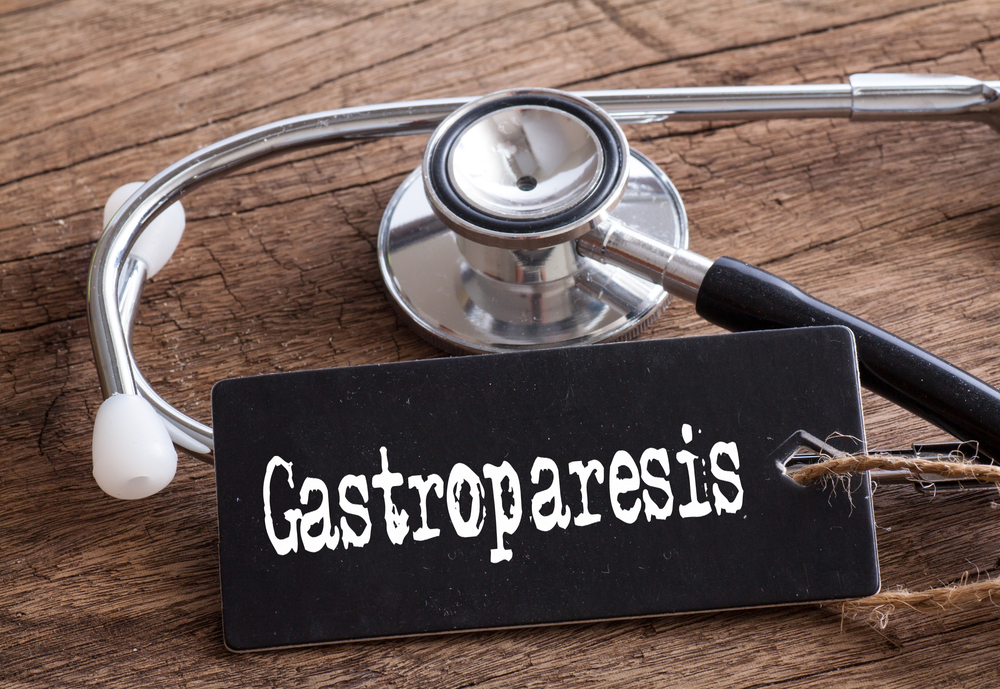Did You Suffer Stomach Paralysis After Ozempic injections?
Ozempic has allegedly been linked to the development of gallstones, cholecystitis, gallbladder disease, and gastroparesis, a condition where the stomach becomes paralyzed. Individuals who have taken Ozempic have reported severe stomach problems, including hospitalizations, surgery and severe health issues leading to Ozempic lawsuits against the manufacturer, Novo Nordisk.

Start My Ozempic Gastroparesis Lawsuit Claim Now
ozempic Gastroparesis Lawsuits
Ozempic has allegedly been linked to the development of gallstones, cholecystitis, gallbladder disease, and gastroparesis, a condition where the stomach becomes paralyzed. Individuals who have taken Ozempic have reported severe stomach problems, stomach paralysis which include hospitalizations for vomiting, surgical intervention and possibly worse, leading to Ozempic lawsuits against the manufacturer for potentially dangerous side effects.
Ozempic, a popular diabetes drug manufactured by Novo Nordisk, has recently faced legal action due to allegations of severe side effects, including gallstones, cholecystitis, gallbladder disease, and stomach paralysis, also known as gastroparesis. Patients who have experienced these adverse effects are pursuing product liability lawsuits against the drug’s manufacturer, claiming that Novo Nordisk failed to provide adequate warnings about the potential risks of using Ozempic. If you or someone you love took Ozempic and suffered from gastroparesis or another alleged drug injury, do not hesitate to discuss your legal options with an Ozempic injury attorney. Our consumer advocates can put you in touch with an experienced attorney specializing in drug injury lawsuits, so call us today or fill out the form to get the help you need.
What is Ozempic?
Ozempic, also known by its generic name semaglutide, is an FDA-approved injection widely used for the treatment of type 2 diabetes. It belongs to a class of drugs called GLP-1 receptor agonists, which work by mimicking the effects of a hormone naturally produced by the body. By stimulating the release of insulin and reducing blood sugar levels, Ozempic helps individuals manage their diabetes. The drug has gained popularity not only for its efficacy in blood sugar control but also for its potential as a weight loss aid. Many patients have experienced significant weight loss while taking Ozempic, leading to its off-label use for this purpose. However, the drug’s weight-loss properties have also raised concerns about potential side effects and their impact on patients’ overall health.
Alleged Side Effects Leading to an Ozempic Lawsuit
In recent lawsuits, patients who have taken Ozempic claim that the drug caused severe gastrointestinal issues and stomach paralysis, a condition known as gastroparesis. One such lawsuit involves Jaclyn Bjorklund, a resident of Louisiana, who alleges in an August 2023 complaint that Novo Nordisk failed to adequately warn her about the potential risks associated with Ozempic. Bjorklund, prescribed Ozempic by her doctor, experienced severe vomiting, stomach pain, gastrointestinal burning, and multiple hospitalizations due to stomach issues. Additionally, she claimed that excessive vomiting led to the loss of some of her teeth. These allegations highlight the significant impact that Ozempic and its side effects had on her quality of life. Other side effects that have been linked to Ozempic use include gallstones, acute cholecystitis (inflammation of the gallbladder), and gallbladder disease.
Link Between Ozempic and Gastroparesis
Gastroparesis, or stomach paralysis, is a condition that affects the normal movement of food from the stomach to the small intestine. It occurs when the muscles in the stomach are unable to contract properly, leading to delayed gastric emptying. This condition can cause symptoms such as feeling full after consuming small amounts of food, nausea, vomiting, abdominal pain, bloating, and poor appetite. While gastroparesis can have various underlying causes, including diabetes, recent reports suggest a potential connection between GLP-1 receptor agonist medications like Ozempic and the development of stomach paralysis. Patients taking Ozempic have reported experiencing gastroparesis-like symptoms, further raising concerns about the drug’s safety.
Link Between Ozempic and Gallbladder Issues
Ozempic has also been linked to an increased risk of severe gallbladder issues such as gallstones, acute cholecystitis, and gallbladder disease. Studies have shown that the active ingredient in Ozempic, semaglutide, may contribute to the development of these conditions by affecting the functioning of the gallbladder. Patients taking Ozempic should be aware of the potential risks and should consult their healthcare provider if they experience symptoms such as severe abdominal pain, nausea, or vomiting.
Pursuing Lawsuits for Ozempic-Related Drug Injuries
Patients who have experienced severe side effects from Ozempic, including stomach paralysis and acute cholecystitis, may choose to pursue legal action against Novo Nordisk. To do so, they can seek the assistance of a drug injury attorney who specializes in holding pharmaceutical companies accountable for their products’ alleged harm. In Ozempic drug injury cases, the plaintiffs must demonstrate that they suffered injuries directly caused by their use of Ozempic and that the manufacturer’s failure to properly warn patients about these side effects contributed to their harm. Working with a knowledgeable attorney can help patients navigate the complex legal process, gather necessary evidence, and present a strong case to seek compensation for their injuries.
The Potential Impact of Ozempic Lawsuits and Patient Safety
Patient safety is of the utmost importance, and it is crucial for pharmaceutical companies to prioritize transparent communication about potential risks and side effects associated with their medications. By doing so, they can help patients make informed decisions about their treatments and minimize the likelihood of severe drug injuries. As Ozempic lawsuits continue to emerge, they shed light on the potential risks associated with the diabetes drug and other GLP-1 receptor agonist medications. These legal actions not only seek compensation for the individuals affected but also aim to hold pharmaceutical companies accountable for their alleged failure to warn patients.
Lawsuits Against Ozempic for Stomach Paralysis, Other Injuries
Ozempic and FDA Warnings
September 2023 – The FDA approves safety-related labeling changes for Ozempic, highlighting the risk of gastrointestinal disorders, particularly ileus, a condition characterized by the inability of the bowel to contract normally and move waste out of the body.
Ozempic Side Effect Studies
GLP-1 analogues: bile duct and gallbladder disease risk
The medical journal JAMA Internal Medicine publishes a study in which GLP-1 analogues are linked to an increased risk of bile duct and gallbladder disease.
October 2016Cholelithiasis side effects linked to GLP-1 RAs
GLP-1 receptor agonists are associated with an increased risk of cholelithiasis, according to research published in the journal Diabetes, Obesity & Metabolism.
September 2017Study: GLP-1 RAs significantly increase cholelithiasis risk
Using Glucagon-Like Peptide-1 Receptor Agonists (GLP-1 RA) significantly increases the risk of cholelithiasis, warns a meta-analysis published in the journal Diabetes Research and Clinical Practice.
February 2020Case Report: medication-induced gastroparesis
A case report republished in the Journal of Investigative Medicine High Impact Case Reports discusses two cases of medication-induced gastroparesis which were initially diagnosed as diabetic gastroparesis. According to the researchers, “thorough history taking revealed the cause [of the gastroparesis] to be medication induced.” They also noted that “Repeat studies following medication discontinuation revealed improvement in symptoms and resolution of gastroparesis.”
October 2021Increased risk of gallbladder or biliary diseases with GLP-1RAs, study shows
In a GLP-1-1 RA study published in JAMA Internal Medicine, researchers find that the use of GLP-1 RAs is associated with an increased risk of gallbladder or biliary diseases. According to the study, the risk is higher when the medications are used at higher doses, for longer periods of time, or for weight-loss purposes.
March 2022Study links semaglutide to gastrointestinal adverse events
The journal Frontiers in Endocrinology publishes a study in which researchers find that "GLP-1 RA [like Ozempic] were significantly associated with gastrointestinal AEs [adverse events], and the association was further attributed to liraglutide, dulaglutide, and semaglutide." The researchers also note that "semaglutide had the greatest risk of nausea, diarrhea, vomiting, constipation, and pancreatitis [...]"
December 2022GLP-1 agonists for weight loss: gastroparesis, pancreatitis, bowel obstruction side effects
In a study comparing the use of the GLP-1 agonists liraglutide and semaglutide to bupropion-naltrexone, researchers find that "use of GLP-1 agonists for weight loss compared with use of bupropion-naltrexone was associated with increased risk of pancreatitis, gastroparesis, and bowel obstruction [...]"
October 2023Why We Think the Manufacturers of Ozempic Should Be Held Liable for Side Effects
In lawsuits against Novo Nordisk and other drug manufacturers, plaintiffs argue that the companies did not provide sufficient warnings about the potential risks of using Ozempic. They claim that the manufacturers failed to disclose the link between GLP-1 receptor agonists and severe gastrointestinal issues, including gastroparesis. The prescribing information for Ozempic does not explicitly mention gastroparesis as a potential side effect. However, it does state that the drug delays gastric emptying, which can impact the absorption of other medications. The lawsuits against Novo Nordisk allege that this warning was insufficient and that the manufacturer should have explicitly warned patients about the potential risk of developing gastroparesis.
The manufacturer of Ozempic should also be held liable for any gallbladder injuries associated with the medication. As a pharmaceutical company, they have a duty to ensure that their products are safe for consumer use. However, in the case of Ozempic, there is evidence linking it to an increased risk of gallbladder issues such as gallstones, acute cholecystitis, and gallbladder disease. This suggests a failure on the part of the manufacturer to adequately warn patients and healthcare providers about these potential risks. By not providing sufficient information, the manufacturer has put patients at risk of serious health complications. Holding the manufacturer accountable for these side effects is crucial to ensure that they take appropriate measures to protect the well-being of consumers and provide the necessary compensation to those who have suffered harm as a result of using Ozempic.
Non Ozempic Lawsuit Related Drugs

Start My Ozempic Lawsuit Claim Now

What should you do? If you suffered from gastroparesis, gallbladder disease, or another alleged drug injury, you should contact a lawyer as soon as possible to discuss filing an Ozempic lawsuit.
Start Your Claim Now!
The lawsuits against Novo Nordisk regarding Ozempic and its alleged connection to stomach paralysis and gallbladder disease highlight the importance of patient safety and the need for pharmaceutical companies to provide accurate and comprehensive information about the potential risks of their drugs. Patients who have experienced severe side effects such as gastroparesis or acute cholecystitis may consider pursuing legal action to seek compensation for their injuries. To learn more about the connection between Ozempic and serious injuries like stomach paralysis, gallstones, and gallbladder disease, or to discuss pursuing legal action against Novo Nordisk for your drug injuries, contact our consumer advocates today or fill out the form for help.
- Fight to Get The Compensation You Deserve
- Experienced Ozempic Attorneys Within Reach



